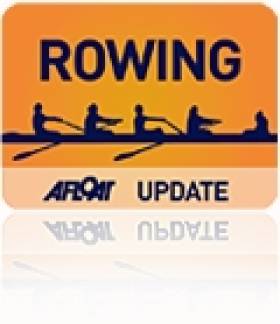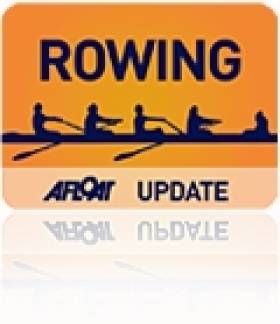Displaying items by tag: McLachlan
Mary McLachlan Joins Rowing Ireland Coaching Team
#RowingCoach: Rowing Ireland has announced that Mary McLachlan has joined its coaching team. McLachlan has been working with British Rowing for the last nine years and joins Rowing Ireland in a voluntary capacity as a High Performance Coach.
Having coached successfully in Schools for a number of years, Mary joined the British Start programme, which aims to identify and develop future Olympians. During this time she also worked with the Lead Coach for juniors as an assistant at trials, training weekends and races. She was the Lead Coach for the GB Coupe de la Jeunesse team in 2006, 2007 and 2008.
In early 2009, she was appointed Performance Coach with British Rowing, working with the Paralympic LTA four. Thirteen athletes raced at World Championships level during the following five years and the crews won all five of the World Cups they attended, with the B crew also winning bronze in Munich 2011. They also won the World Championships in 2009, 2011 and 2013 with a silver in 2010, plus Paralympic Gold at the London Games in 2012.
Mary is married to Rowing Ireland Lead Coach Don McLachlan.
"I’m really excited about working for Rowing Ireland," Mary McLachlan said. "There are some very talented athletes and coaches in Ireland and I will be trying to support these people wherever possible."
Rowing Ireland Appoints McLachlan as Lead Coach
# ROWING: Don McLachlan has been chosen as lead coach in the Ireland system, to succeed Adrian Cassidy. In a statement, Rowing Ireland said: Rowing Ireland is pleased to announce that Don McLachlan has been appointed Lead Coach to the Rowing Ireland High Performance Programme. He will take up appointment at the end of April.
McLachlan, a New Zealander, is coming to Ireland from the role of Head of Rowing, Imperial College Boat Club, one of the premier University clubs in the UK and a designated Great Britain High Performance centre. Since 2005 he has coached British medal winning crews at the World Championships, the European Championships and the U23 World Championships.
As a rower, McLachlan was a member of the New Zealand U23 national squad, the Olympic development squad and was many times a New Zealand national champion.
Commenting on McLachlan's appointment, Morten Espersen, Rowing Ireland High Performance Director said: “Don comes to Irish Rowing with an excellent track record as a coach at the highest level of Great British club rowing and with the experience of coaching successful World Championship crews at senior and U23 levels. I believe that he will provide excellent leadership to our High Performance coaching team and will work well with both elite athletes and key coaches in Irish rowing. His appointment will ensure that our international athletes will be provided with every opportunity to realise their full potential during his tenure.”
McLachlan said: “I am delighted to be joining the Irish Rowing High Performance team and am excited by the prospect of working with Morten and the squad of up and coming Irish elite rowers. I look forward to getting to know the athletes and to working with them to help Irish rowing achieve its full potential on the International stage.”
McLachlan will be based in the National Rowing Centre in Cork.































































